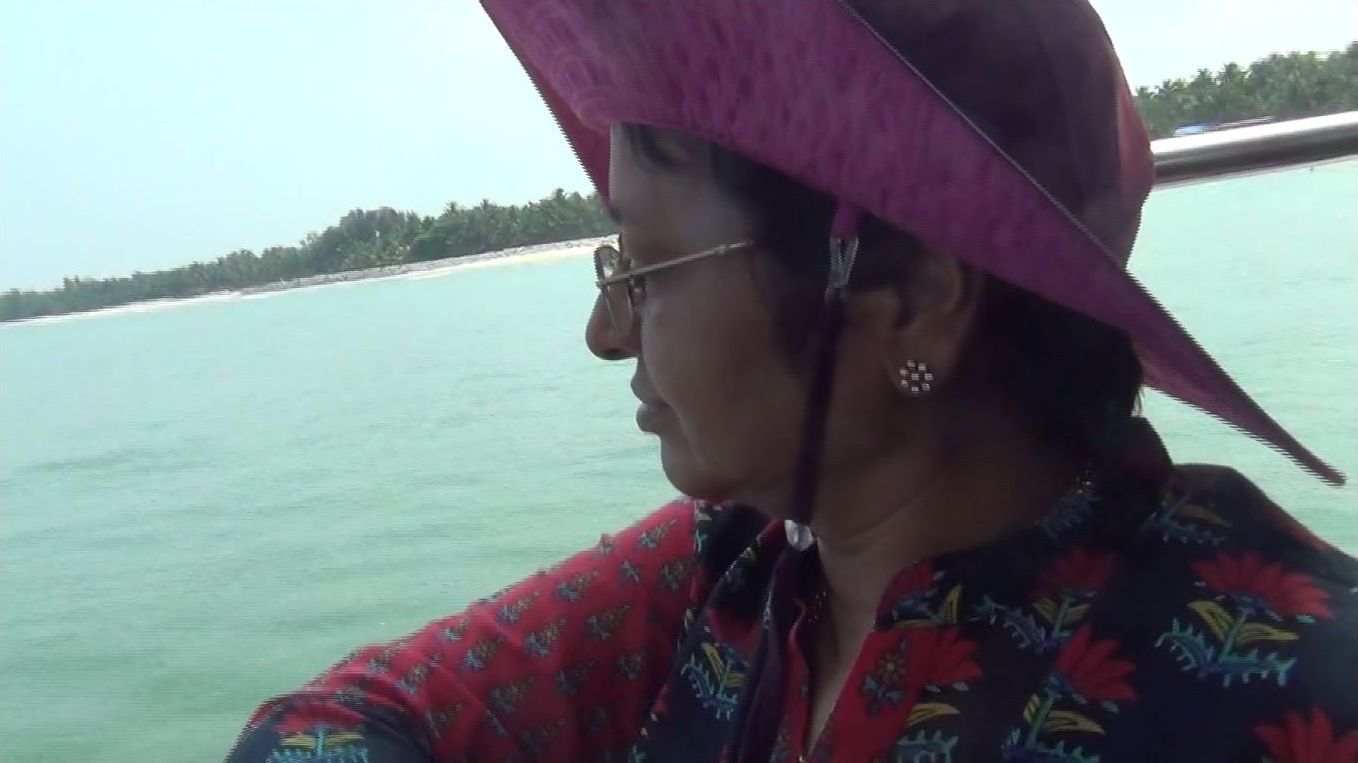St. Mary's Island, also known as Coconut Island and Thonsepar,
is one of the four small islands in the Arabian Sea off the coast of Malpe in
Udupi, Karnataka and these islands are known by the name of St. Mary’s Islands.
Tourists are permitted to only one of these Islands which is popularly referred
to as St. Mary’s Island. We have been to this wonderful place after an exciting
boat ride on the Arabian Sea. There are regular boat services to the island
from Malpe beach and it takes about 20 minutes to reach the island. It is a
very clean and beautiful Island with beaches of tiny pebbles and sea shells and
crystal clear waters. It is a must-visit place if you are in the neighbourhood.
These places are very familiar to me as I was just 13 km away, at Manipal for
five years studying Engineering at MIT-Manipal Institute of Technology. This is
my wife’s first visit and she is thrilled with the trip. As always it is a
memorable trip for me too.
According to folk legend, it is said that in the year 1498,
Vasco da Gama landed at St. Mary's Islands on his journey from Portugal, fixed
a cross on this Island and named it O Padrão de Santa Maria, as a dedication to
Mother Mary, before proceeding to Kozhikode in Kerala. It is from this name
that the islands got their current name, St. Mary’s Islands.
The details I have provided below are mostly from the signboards
on St. Mary’s Island. I have attached pictures of these signboards; you may
zoom into those pictures for more details.
These Islands are known for their distinctive geological
formation of columnar Basaltic lava. The islands form one of the four
geological monuments in Karnataka State and one of the 26 Geological Monuments
of India declared by the Geological Survey of India in 2001. The monument is
considered an important site for "Geo Tourism". Scientific studies
indicate that the Basalt of the St. Mary's Islands was formed by sub-aerial
sub-volcanic activity because at that time Madagascar was attached to India.
The rifting of Madagascar took place around 88 million years ago. The Columnar
Basaltic lava rocks form regular five, six or seven-sided pillars called
“Laminar lava”, and are found in varying heights in all the islands; the tallest
of the columns is about 6m (20ft).
St. Mary’s Island covers an area which is about 500m (1,640.4ft)
in length with a width of 100m (328.1ft). It has prominent Coconut trees, its
cover reflecting an azure South Sea colour, and hence the island is also called
Coconut Island. The highest elevation of this island is about 10m (32.8ft)
above mean sea level. There is no habitation on the islands.
The attached photographs and videos, I am sure will convey to the readers the beauty and excitement of visiting this unique island in the Arabian Sea.





















































No comments:
Post a Comment